
A Francis Bacon discovery
Andrea del Sarto’s ‘Pietà’ | Young Frans Floris | Giuseppe Antonio Ghedini’s drawings | Jean-Charles Cazin
NEW RESEARCH ON ART AND ITS HISTORY MARCH 2024
Mark Rothko in Paris | The Pollaiuolo brothers | Moroni in Milan | Lord Cowper | Women in Revolt!






D I C K I N S O N OLD MASTERS | MODERN MASTERS london@simondickinson.com
Sir Anthony Van Dyck
c.1618 STAND 356 2024
Portrait of a Carmelite monk, (detail)






Six Paintings of the People of Dominica and Saint Vincent
Recently acquired by The Huntingdon Library and Museum, California
AGOSTINO BRUNIAS (1730–1796)


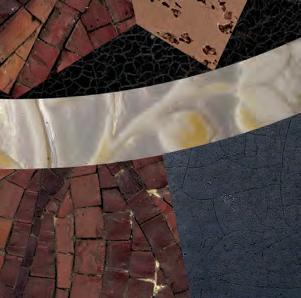
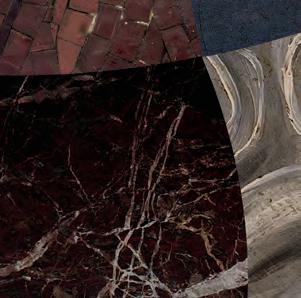

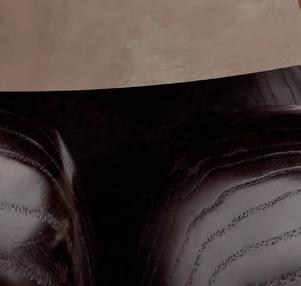



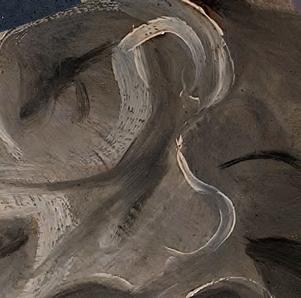



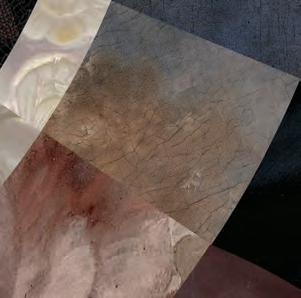

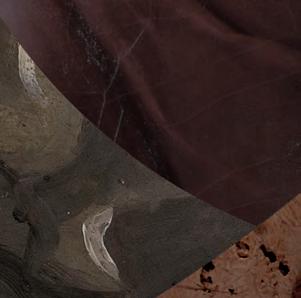






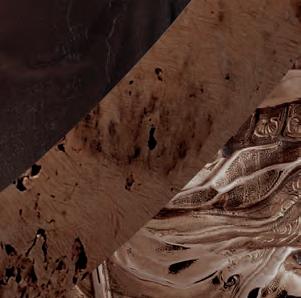





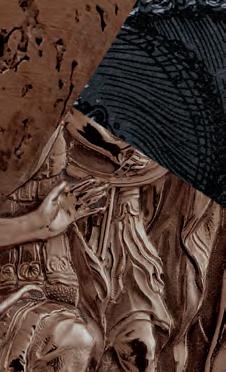

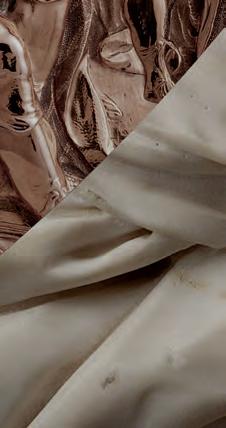

ANTONIO
The Penitent
Saint Mary Magdalene
Ca. 1640–1650
Terracotta, h. 41 cm
Signed ATO. NL. F.

www.trinityfineart.com
TEFAF MAASTRICHT 2024
NOVELLI (1599–1650)

MAASTRICHT
For more details please visit: tefaf.com/fairs/tefaf-maastricht
9–14 MARCH 2024 | MECC
Comte de l’Empire
Etienne Pierre Graf
Méjan (Secretary of the Italian Kingdom), by Luigi Manfredini (1771–1840), after Joseph Chinard (1756–1813). Milan c.1811. Bronze, height 75 cm. Burzio, London. Stand 157.

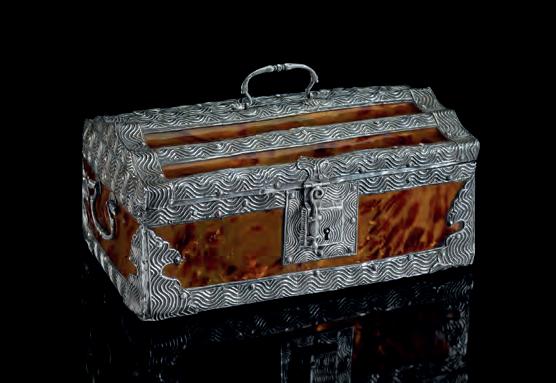
THE ART WORLD DESCENDS on Maastricht this month, as nearly three hundred exhibitors from across the world gather to present their finest works of art and rare objects for The European Fine Art Foundation (TEFAF) annual event. Accompanied by a programme of scholarly talks and exhibitions both on and offsite, TEFAF has championed expertise and excellence for more than three decades.
TEFAF Maastricht continues to evolve: this year sees the launch of the TEFAF Summit in association with the Netherlands Commission for UNESCO. The inaugural event will explore the various challenges facing cultural heritage – global conflicts, climate change, tourism and other economic factors – and bring together some of the leading thinkers and experts for a oneday discussion on Monday 11th March. The keynote lecture will be given by the Director General of National Museums of Italy, Professor Massimo Osanna. A connected partnership with Venetian Heritage and the Italian Ministry of Culture has also been announced, securing three works from the Galleria Giorgio Franchetti alla Ca’ d’Oro, Venice, for the TEFAF loan exhibition: Tullio Lombardo’s double portrait in marble; a bronze relief by Andrea Riccio depicting St Martin’s Charity; and a small Crucifixion panel by Jan van Eyck and his workshop.
This year the TEFAF Museum Restoration Fund has been awarded to the National Gallery of Ireland, Dublin, and the Wadsworth Atheneum Museum of Art, Hartford CT, for the conservation of Ludovico Mazzolino’s large oil on panel painting the Crossing of the Red Sea (1521), and Venus with a nymph and satyr (1600), a marble sculpture by Pietro Francavilla, respectively.
For more information please visit: TEFAF.com
Françoise de la Rochefoucauld (c.1549–c.1580), by Prosper d’Épinay (1836–1914). c.1885.
Polychrome terracotta, height 60.3 cm.
Stuart Lochhead, London. Stand 112.


Study for a lion, by Edwin Landseer (1802–73). c.1822. Oil on canvas, 92.5 by 72.5 cm. Dickinson Fine Art, London. Stand 356.
Gujarat casket India, Gujarat, second half of the 16th century. Tortoiseshell with silver mounts, 14 by 29.5 by 18 cm. São Roque, Lisbon. Stand 179.
IV THE BURLINGTON MAGAZINE | 166 | MARCH 2024
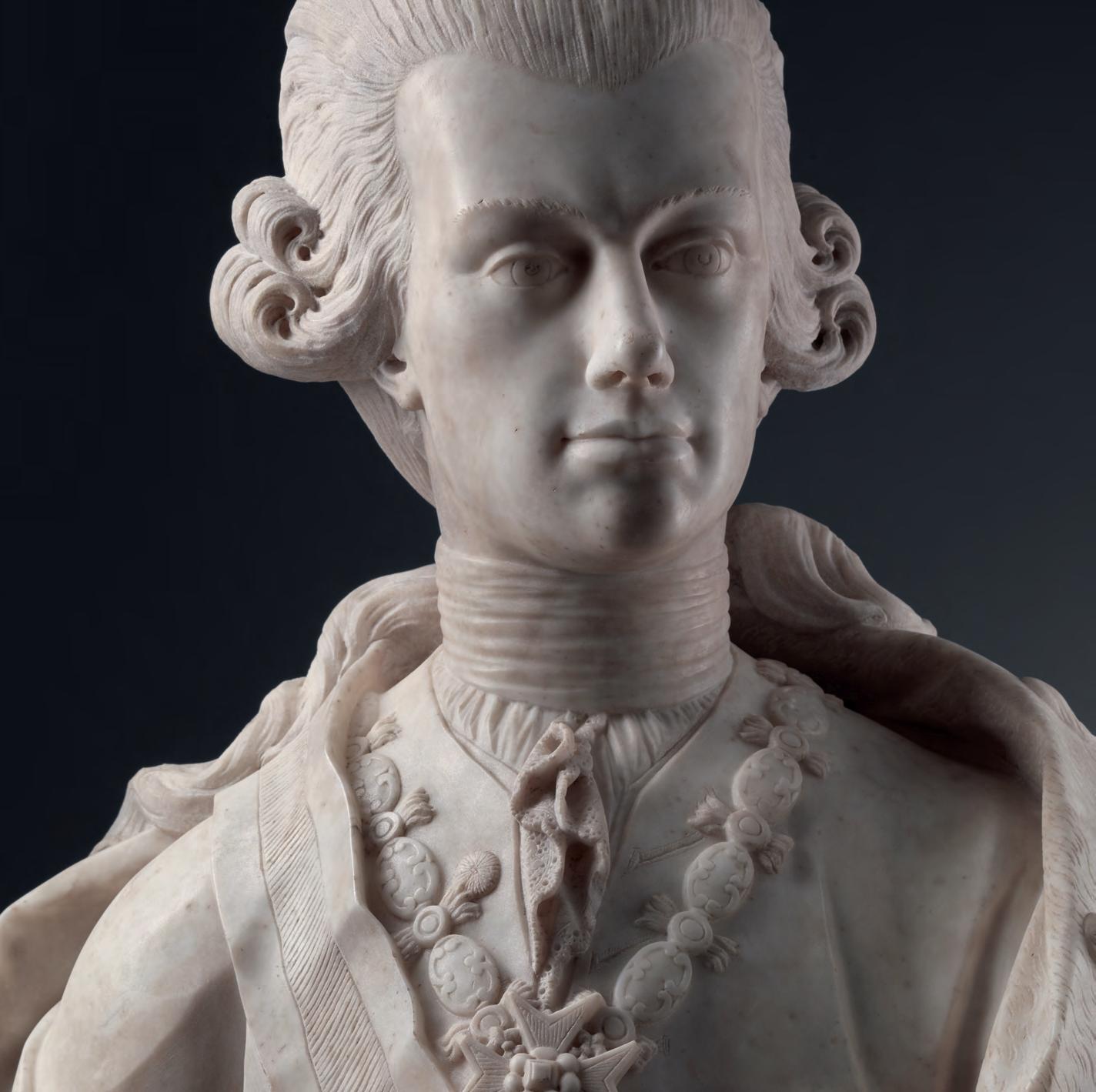








MAASTRICHT
For more details please visit: tefaf.com/fairs/tefaf-maastricht


Oblong table, by Martin-Guillaume Biennais (1764–1843). Moulded, chased and gilded bronze, inlaid French scagliola top, 71 by 72 by 45 cm.
Artur Ramon Art, Madrid. Stand 253.


Sir Horace Mann, by Prince Hoare (1755–1834).
c.1749. Terracotta, height 51.5 cm. Walter Padovani, Milan. Stand 232.
Peace and Justice (also known as Love and Justice), by Rosalba Carriera (1673–1757).
Pastel on paper, 63 by 54 cm.
Brun Fine Art, London. Stand 176.

Honey, from the Liechtenstein Tacuinum Sanitatis. c.1450. Illuminated manuscript on vellum, 160 by 170 cm.
Dr Jörn Günther Rare Books, Basel. Stand 114.
 Potted pansies, by Victoria Dubourg (1840–1926). c.1870s. Oil on canvas, in original frame, 21 by 26.8 cm.
Robilant+Voena, London and Rome. Stand 350.
Potted pansies, by Victoria Dubourg (1840–1926). c.1870s. Oil on canvas, in original frame, 21 by 26.8 cm.
Robilant+Voena, London and Rome. Stand 350.
MARCH 2024 | MECC
Snow over Zojoji Temple, by Kawase Hasui (1883–1957). 1953. Woodblock print, 36.4 by 47.3 cm. Galerie Tanakaya, Paris. Stand 615.
9–14
VI THE BURLINGTON MAGAZINE | 166 | MARCH 2024









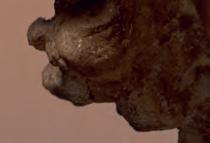



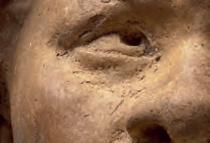



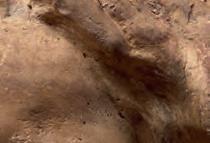

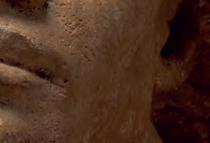













Why Born Enslaved!

Jean-Baptiste Carpeaux (1827–1875)
Plaster model with original polychrome surface , c. 1868 Petite-Modèle, height 35 cm (13 5⁄8”)














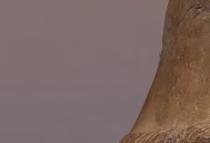


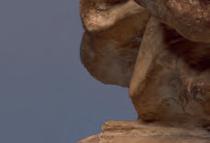

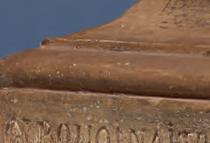
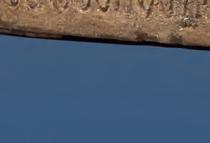
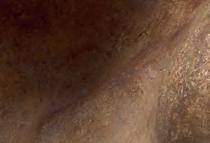







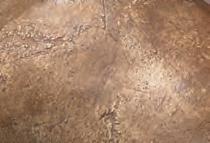



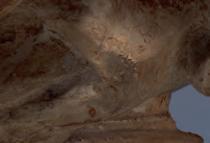






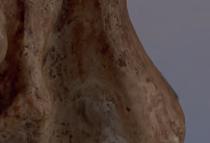


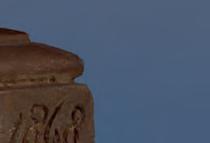




www.stuartlochhead.art
Stand 112

















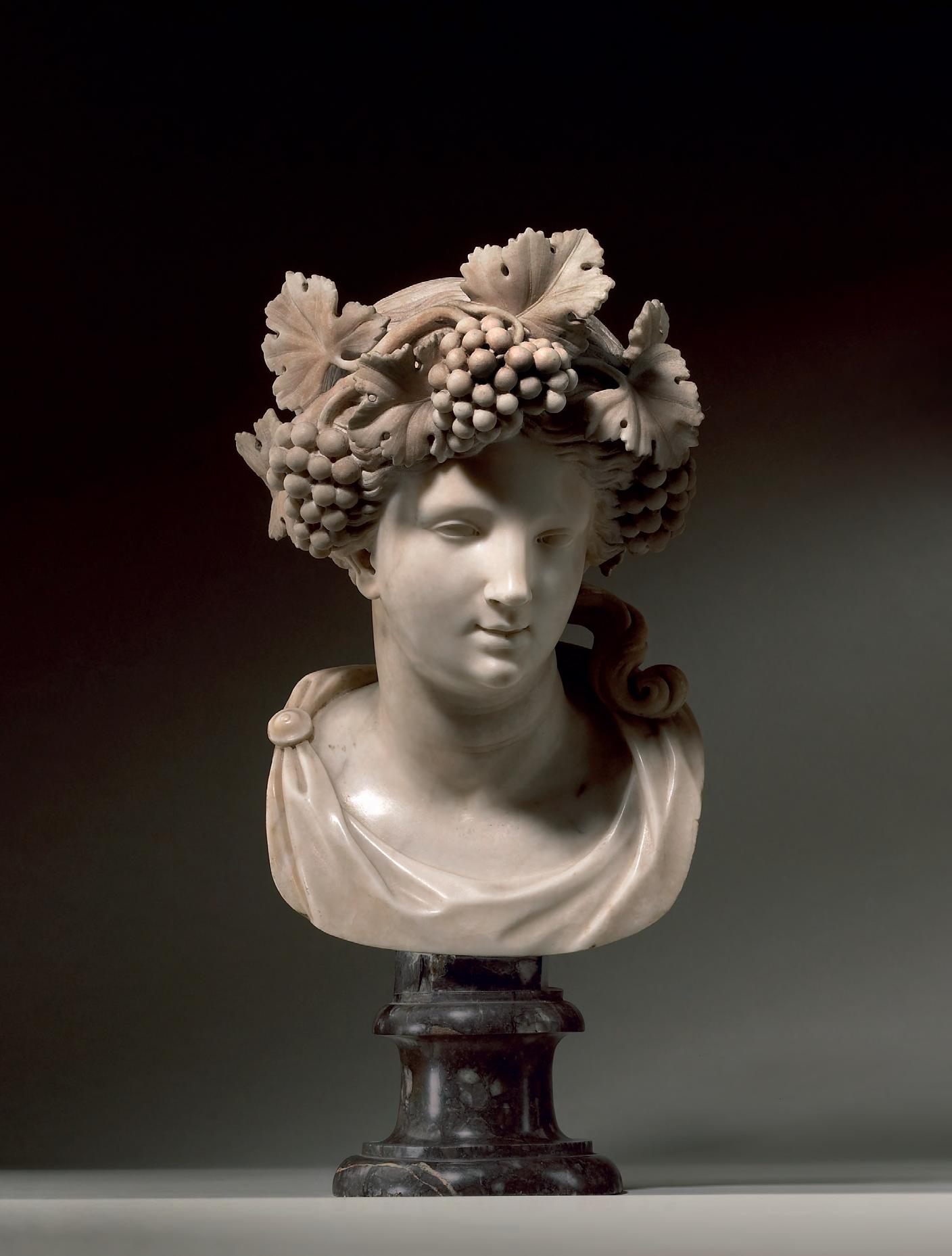



info@tomasso.art tomasso.art
206
THE MENTMORE BUSTS STAND



















THE MENTMORE BUSTS


info@tomasso.art tomasso.art
STAND 206

MAASTRICHT
For more details please visit: tefaf.com/fairs/tefaf-maastricht
Nude woman leaning on her left forearm, by Amedeo Modigliani (1884–1920). c.1910.
Pencil on wove paper, 43 by 26.7 cm.
Agnews Works on Paper, Brussels. Stand 609.



The Saccomazzone Players, after a model by Orazio Mochi (1571–1625). Florence, 17th century. Bronze, 36.5 by 45 by 30 cm. Tomasso, London. Stand 206.

De Wit Fine Tapestries, Mechelen. Stand
Infanta Catalina Micaela, Duchess of Savoy (1567–97), by Alonso Sánchez Coello (1532–88). c.1585.
Oil on paper laid on panel, 8.3 by 6.8 cm.
Galeria Caylus, Madrid. Stand 346.
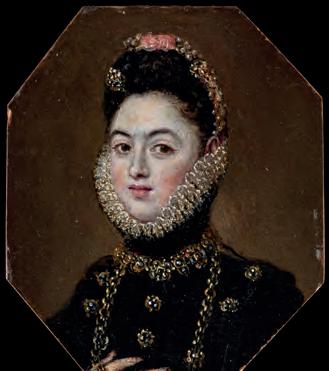

Cockerel caster by Michael Wissmar (d.1746). c.1720. Silver, cast, repoussé, pierced, engraved, flat-chased and parcelgilt, height 23.5 cm. Kunstkammer Georg Laue, Munich. Stand 204.
Rauch, by Franz West (1947–2012). 2008. Papier-mâché, acrylic paint, metal, wood, artist pedestal, 152 by 104 by 62 cm. Tim Van Laere Gallery, Antwerp. Stand 463.
The unicorn passes over the sea, by Le Corbusier (1887–1965). 1962. Wool, 213 by 270 cm.
MARCH 2024 | MECC
244.
9–14
X THE BURLINGTON MAGAZINE | 166 | MARCH 2024












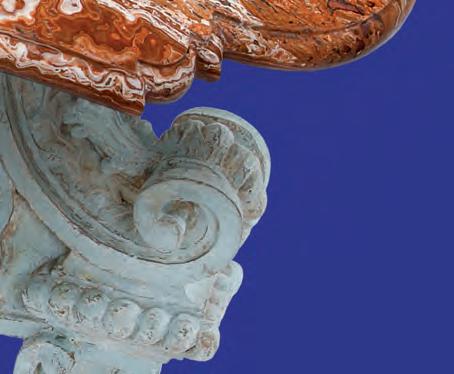







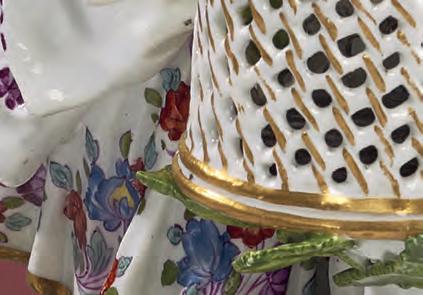
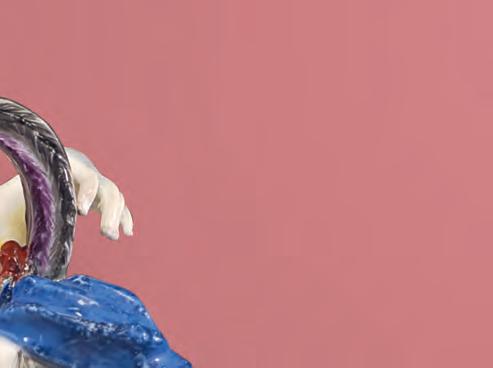




KAENDLER’S MEISSEN PORCELAIN FIGURES
24 MAY 29 SEPTEMBER 2024

WAWEL ROYAL CASTLE KRAKOW · POLAND

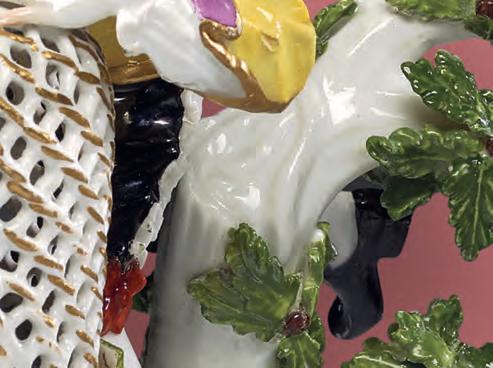








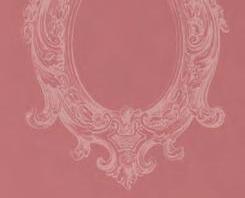



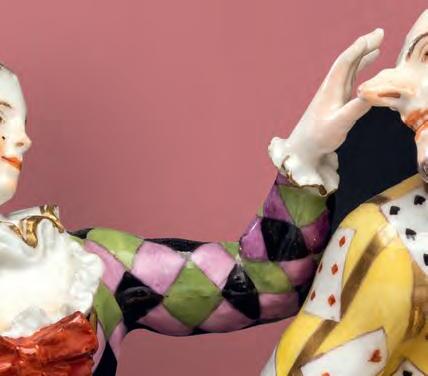

Johann Joachim Kaendler (1706–1775)








Harlequin and Columbine with slapstick Model, 1739–1740





decoration,


Manufacture and Meissen, c. 1740




H. 15.5 cm (6.1 in), w. 18.5 cm (7.3 in)





STAND
Tel. +49 89 299758 www.roebbig.de Brienner Straße 25 80333 München
TEFAF MAASTRICHT MARCH 9–14, 2024 ·
122
LUND HUMPHRIES • BOOKS ON ART HERSTORY

Women Artists in the Reign of Catherine the Great
By Rosalind P. Blakesley
‘A unique and invaluable contribution to Russian art history and gender studies’ – Molly Brunson, The Russian Review

Louise Moillon
By Lesley
Stevenson
‘Lesley Stevenson examines Louise Moillon’s artistic trajectory in this nimble, elegant book which will bring surprises’
- Blaise Ducos, Musée du Louvre

Sofonisba Anguissola
By Cecilia Gamberini
‘It is a story which reinvigorates and deepens our understanding of an artist who was also a pioneer of female art’ – Angela Ghirardi, Art Historian
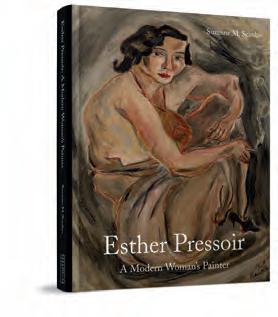
Esther Pressoir: A Modern Woman’s Painter
By Suzanne Scanlan
‘Accounts of American 20th-century art would do well to reclaim more figures like Esther Pressoir’
– Sacha Llewellyn, Founder of RAW
Order now at www.lundhumphries.com and use code HERSTORY for 20% off until 31 March. Sign up to our newsletter and receive 10% off your next order.
Follow us @lhartbooks for more Women’s History Month content!

ANNIVERSARY AUCTIONS 2024
15 MARCH RARE BOOKS MANUSCRIPTS AUTOGRAPHS OLD PRINTS
16 MARCH MODERN PRINTS
CONTEMPORARY PRINTS
xiv the burlington magazine | 166 | march 2024
Cäcilienstrasse 48 · 50667 Cologne · Tel. +49-221-257 54 19 · venator@lempertz.com · www.venator-hanstein.de M.G.F.A. Comte de Choiseul-Gouffier. Voyage pittoresque de la Grèce. 3 vol. Paris 1782-1824.
Burlington-March24-V&H.indd 1 09.02.24 10:00
São Roque




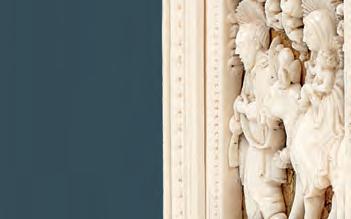
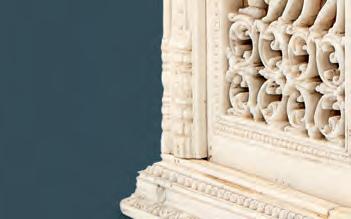


Portuguese Continental and Overseas Expansion Art
TEFAF Maastricht, 9 – 14 mars — Stand 179


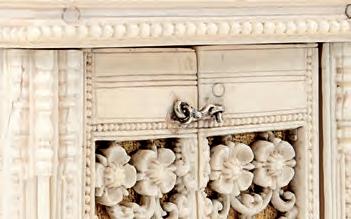







A Sinhalese Tabernacle Masterpiece
Ceylon, ca. 1590 – 1630
Dim.: 22.8 × 9.8 × 9.8 cm is altar tabernacle embodies the most relevant addition to the current knowledge of religious carved paraphernalia produced in Portuguese ruled Ceylon. Jewel like, and unparalleled for its openwork plaques, it illustrates to perfection the devotional art introduced by the Europeans, in the Ceylonese religious landscape.

Its reduced dimensions and architectural characteristics, intend it to be for a small domestic chapel. Its iconography refers to scenes of the Life of the Christ Child inspired by engraves by the Wierix brothers and other contemporary Dutch artists. Prov.: Hermann Baer; Brenninkmeijer family from 1977.


lisbon · PORTUGAL
SÃO ROQUE ANTIQUES & ART GALLERY RUA DE S. BENTO, 199B § 1250 – 219 LISBON § PORTUGAL § T+ F +351 213 960 734 M +351 962 363 260 e geral@saoroquearte.pt www.antiguidadessaoroque.com









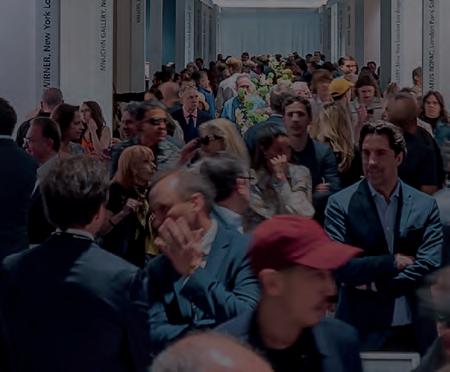






ACTIVE
Oil on canvas, 67½ × 40¾ in (171.5 × 103.5 cm) 1670/1690
Exhibiting at Tefaf Maastricht, 9–14 March 2024
www.canesso.art galeriecanesso galeriecanesso
MASTER OF THE CANESSO PEDDLER
IN NORTHERN ITALY IN THE LATE 17 th CENTURY
A Book Peddler
São Roque
lisbon · PORTUGAL
Portuguese Continental and Overseas Expansion Art
TEFAF Maastricht, 9 – 14 mars — Stand 179
For over 30 years São Roque has held an undisputed reputation in the world of Art and Antiques for the rarity and exclusivity of its artworks, in an unmatched symbiosis of quality and guaranteed authenticity. A reference for both private and institutional collectors as well as for international Museums, São Roque’s team of specialists ensure that it maintains its preeminent position in an ever-growing and globalized Art and Antiques market.




















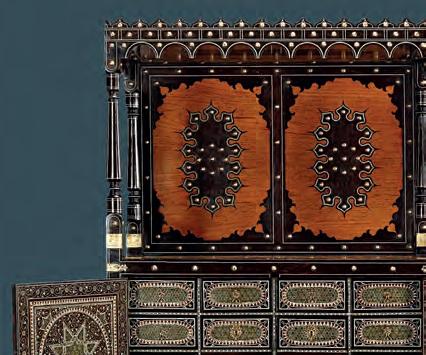








A Sind Indo-Portuguese Extraordinary Cabinet
Teak, ebony, ivory, green-dyed bone, gilt copper fittings
India, Sind (present-day Pakistan), ca. 1580 – 1630
Dim.: 182.0 × 97.0 × 61.0 cm
Provenance: Casa do Costeado, Portugal
Following a European prototype, this magni cent cabinet was made for a wealthy aristocratic household, reminiscent of contemporary ebony, marquetry or pietre dure cabinets made at the most a uent courts of Europe. Bridging Western furniture types with local, highly elaborate Iranian-derived decorative techniques, such as sadeli, and costly exotic





































materials, this cabinet epitomises the re ned taste of the Portuguese clientele that commissioned it. Examples of such large pieces, made in the western coastal centres of India for export, are exceptionally rare. As far as we know, there is only an identical cabinet in a private collection in Portugal, published in Dias P., Mobiliário Indo-Português (pp. 259 – 262).




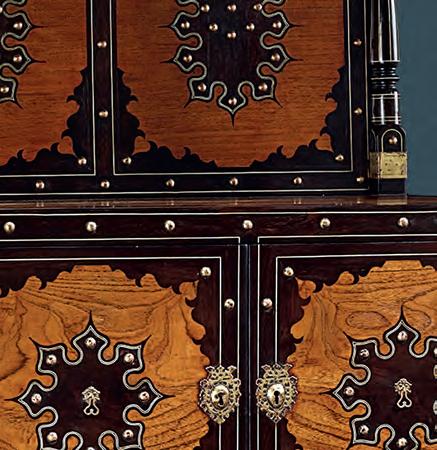








SÃO ROQUE ANTIQUES & ART GALLERY RUA DE S. BENTO, 199B § 1250 – 219 LISBON § PORTUGAL § T+ F +351 213 960 734 M +351 962 363 260 e geral@saoroquearte.pt www.antiguidadessaoroque.com



FRIDAY 28 JUNE –
FRIDAY 5 JULY, 2024

London Art Week announces a new strategic partnership and collaboration with Trois Crayons , who will be hosting a week-long drawings hub at No.9 Cork Street to coincide with LAW Summer 2024.
Learn more at www.londonartweek.co.uk/exhibitors/trois-crayons
for more information about our free online talks programme to learn more about the LAW 2024 Curators Programme
 Images courtesy of LAW exhibitors Stephen Ongpin Fine Art (left) and Philip Mould & Company (right)
Images courtesy of LAW exhibitors Stephen Ongpin Fine Art (left) and Philip Mould & Company (right)

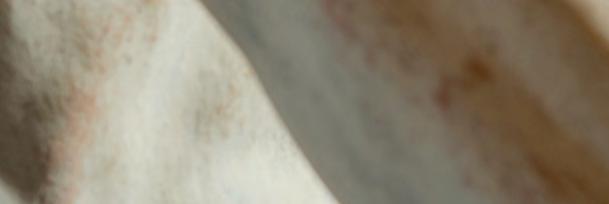


March9-14,2024|Stand176
March9-14,2024|Stand176
March9-14,2024|Stand176


TerracottagroupdepictingHerculeswithlion. Signedanddated:Bardifecit1790 68x46x37cm
TerracottagroupdepictingHerculeswithlion. Signedanddated:Bardifecit1790 68x46x37cm
TerracottagroupdepictingHerculeswithlion. Signedanddated:Bardifecit1790 68x46x37cm
MILAN | FLORENCE | LONDON
MILAN | FLORENCE | LONDON




The Burlington Magazine is
to announce its sixth annual scholarship which has been created to provide funding over a 12-month period to those engaged in the study of French 18thcentury fine and decorative art to enable them to develop new ideas and research that will contribute to this field of art historical study. Applicants must be studying, or intending to study, for an MA, PhD, post-doctoral or independent research in this field within the 12-month period the funding is given. Applications are open to scholars from any country. A grant of £10,000 will be awarded to the successful applicant. Deadline for applications is 17 March 2024 and the successful applicant will be notified by 31 May 2024. For application guidelines and terms and conditions please visit www.burlington.org.uk

















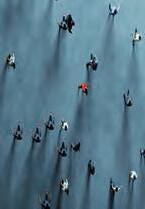









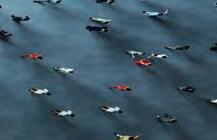
xxii the burlington magazine | 166 | march 2024 PRINT QUARTERLY ADVERTISE SUBSCRIBE PUBLISH www.printquarterly.co.uk Empower your team with one trusted source for the news, events, politics & business of the global art world Contact us now to request information on a bespoke package for your organisation’s needs: groupsubscriptions@theartnewspaper.com Group subscriptions from The Art Newspaper 2024 SCHOLARSHIP for the study of French 18th-century fine and decorative art INVITATION FOR APPLICATIONS
SUBSCRIBE TO THE IRISH ARTS REVIEW FROM ONLY £50 AND RECEIVE: Four editions of the Irish Arts Review plus FREE access to the Online Price Guide to Irish Art Sales! T: +353 1 676 6711 E: subscriptions@irishartsreview.com IRISHARTSREVIEW.COM € 10 (STG£9)
pleased
OLD MASTER DRAWINGS
AUCTION • 20 March 2024 • Paris
PUBLIC VIEWING • 15 -20 March 2024 • 9 Avenue Matignon, Paris 8e
CONTACT • Hélène Rihal • hrihal@christies.com
• +33 (0)1 40 76 86 13

LOUIS-CLAUDE VASSÉ (PARIS 1716-1772)
Study for the funeral monument of Paul-Esprit Feydeau de Brou
Estimate: €15,000-25,000
Auction | Private Sales | christies.com

Brongniart
de la Bourse 75002 Paris salondudessin.com
Palais
Place
avec quatre personnages , encre de Chine sur papier, Fondation Dubuffet, Paris, 24 12 1961© ADAGP, Paris Official Partner 2024
Guest of honour : La Fondation Dubuffet
Site
CHARLES RATTON & GUY LADRIÈRE
ANTIQUE - MOYEN AGE - ARTS PRIMITIFS - DESSINS TABLEAUX - SCULPTURES - OBJETS
D’ART

PIER LEONE GHEZZI (1674–Rome–1755)
A waiter with a tray Pen and brown ink, 31.2 x 21.5 cm.
This drawing is included in our exhibition Old Masters Drawings, New Acquisitions 18-29 March 2024
11, quai Voltaire, 75007 Paris. Tél (0) 1 42.61.29.79
e-mail: galerie.ratton.ladriere@wanadoo.fr Instagram: galerierattonladriere www.ratton-ladriere.com
Salon du Dessin
20th to 25th March 2024
Palais Brongniart, Place de la Bourse, 75002 Paris
For the full programme of events, please visit: salondudessin.com
Studio Talk, book cover project, by Sonia Delaunay (1885–1979). 1938. Gouache on paper, 27 by 21 cm.
GALERIE LAURENTIN, PARIS
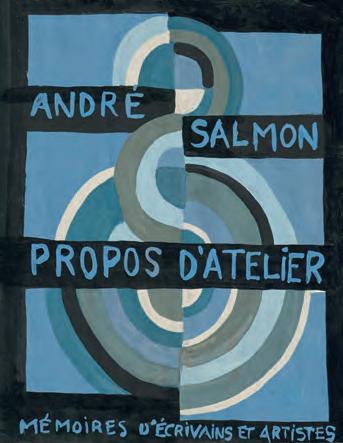

Reclining lion and feline head, by Eugène Delacroix (1798–1863). Pen and brown ink and wash, 18 by 23 cm.
GALERIE DE BAYSER, PARIS
Pierre, by Mary Cassatt (1844–1926). 1906. Pastel on paper mounted on canvas, 58 by 48 cm.
GALERIE ERIC COATALEM, PARIS

THE SALON DU DESSIN returns to Palais Brongniart this March for its thirty-second edition. The event is the nucleus of Drawing Week, which sees a variety of drawings-related events and exhibitions take place across the capital.
Lectures taking place during the Salon as part of the International Drawing Meetings series will focus on travel drawing, while this year’s guest of honour is Katrin Bellinger of the Tavolozza Foundation who will be exhibiting works from her collection. The Fondation Dubuffet will present works on paper from across Jean Dubuffet’s career as the main museum exhibition within the Salon, showcasing his diverse techniques and inventive draughtsmanship.
Satellite events – guided tours, displays and gallery talks – will take place at twenty institutions around Paris, including Beaux-Arts de Paris, the Bibliothèque Nationale de France and the National Archives. Returning to Paris for its third year, is the Paris Print Fair – a serious art fair dedicated to printmaking organised by the Chambre Syndicale de l’Estampe, du Dessin et du Tableau.
The Drawing Now Art Fair, showcasing the best of contemporary drawing, runs concurrently with the Salon du Dessin, and for the third consecutive year the two organisers are offering visitors a discounted combined entry ticket (€25 to visit both fairs instead of €32). Contemporary drawing will also be celebrated at the Salon itself, with the esteemed Contemporary Drawing Prize being awarded by the Daniel & Florence Guerlain Contemporary Art Foundation on Thursday 21st March.

Untitled, 1973, by Sam Francis (1923–94). 1973.
Acrylic on paper, 15.2 by 23.1 cm.
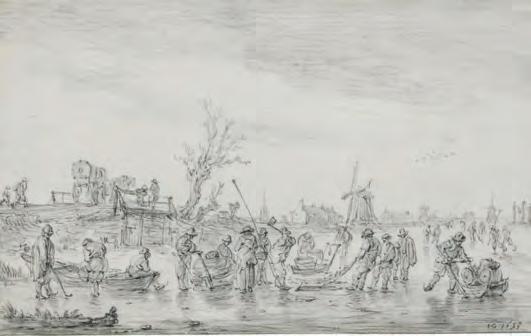
Winter landscape with fishermen and skaters on the ice, by Jan van Goyen (1596–1656). 1653. Black chalk and grey wash, 17.1 by 27.4 cm.
xxvi the burlington magazine | 166 | march 2024
GALERIE BÈRES, PARIS
ONNO VAN SEGGELEN FINE ARTS, ROTTERDAM





The Gustav Klimt Sale
24-04-2024













Gustav Klimt, “Portrait of Fräulein Lieser”, Estimate: € 30 Mio - 50 Mio 1917, oil on canvas; framed, 140 x 80 cm
For more information: office@imkinsky.com , +43 1 532 42 00, imkinsky.com



AUCTION HOUSE VIENNA
Salon du Dessin
20th to 25th March 2024
Palais Brongniart, Place de la Bourse, 75002 Paris
For the full programme of events, please visit: salondudessin.com
Meyer de Haan or Melancholy, by Paul Gauguin (1848–1903). c.1889. Ink and pencil on paper, 29.8 by 19.1 cm.
FRANÇOIS DELESTRE FINE ARTS, PARIS


The fall of the damned and the seven-headed Hydra, by Federico Zuccari (1539–1609). Black chalk, pen, brown ink, red chalk and brown wash, 28.7 by 35 cm.
MAURIZIO NOBILE FINE ART, PARIS
Study of a man’s head, by PierrePaul Prud’hon (1758–1823). 1819. Black crayon, stumping, and white chalk, 19 by 24 cm.
GALERIE TERRADES, PARIS
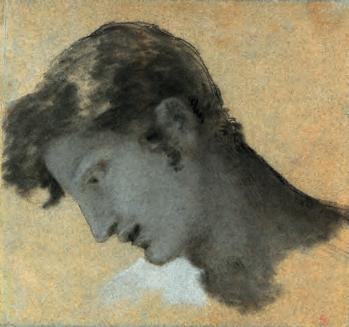

1777.
W.M. BRADY & CO., NEW YORK
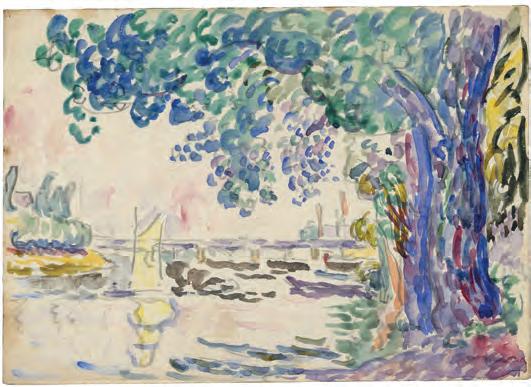
Waterfront. Aisnères, by Paul Signac (1863–1935). c.1900. Graphite and watercolour on paper, 12.5 by 17.5 cm.
GALERIE PAUL PROUTÉ, PARIS

Study of two characters, by Giovanni Battista Tiepolo (1696–1770). Pen and brown ink wash with traces of black crayon, 20 by 20.7 cm.
GALERIE TARANTINO, PARIS
xxviii the burlington magazine | 166 | march 2024
Study for ‘The Levenson Children’, by George Romney (1734–1802).
Brush and brown wash over black chalk, 26 by 27 cm.
NEW & FORTHCOMING
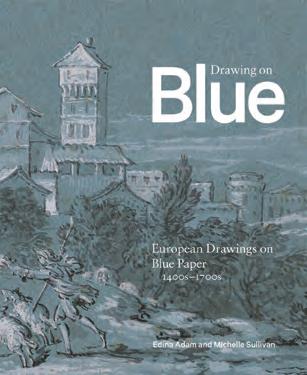

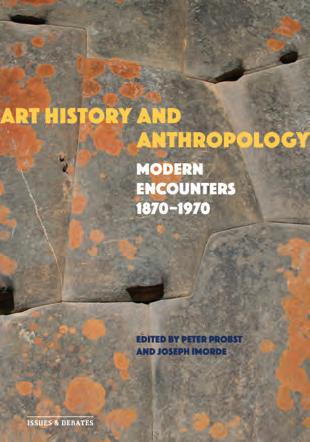

Drawing on Blue European Drawings on Blue Paper, 1400s–1700s
Edited by Edina Adam and Michelle Sullivan
Bringing together the world’s leading specialists in the medium, this engaging publication is destined to become essential reading on the history and techniques of drawings executed on blue paper.
Art History and Anthropology Modern Encounters, 1870–1970
Edited by Peter Probst and Joseph Imorde
This volume provides an in-depth and nuanced look at the complex relationship between two dynamic fields of study in the colonial and early postcolonial periods.




Picture Worlds
Storytelling on Greek, Moche, and Maya Pottery
Edited by David Saunders and Megan E. O’Neil
This abundantly illustrated volume is the first to explore the painted pottery of the ancient Greek, Moche, and Maya cultures side by side.
Artists’ Things
Rediscovering Lost Property from Eighteenth-Century France
Katie Scott and Hannah Williams
Innovative and revealing, this openaccess book explores objects that once belonged to artists, providing insight into the eighteenth-century art world in France and the individuals who populated it.




Ruth Asawa
An Artist Takes Shape
Sam Nakahira
Featuring lively illustrations and photographs, this young-adult graphic biography of Japanese American artist Ruth Asawa chronicles her formative years.
East Asian Aesthetics and the Space of Painting in Eighteenth-Century Europe
Isabelle Tillerot, translated by Chris Miller
An insightful examination of how European imports of East Asian textiles, porcelain, and lacquers inspired a revolution in the role of painting in early modern Europe.
Getty Publications getty.edu/publications
© 2024 J. Paul Getty Trust


500 Years of British Art www.philipmould.com art@philipmould.com +44 (0)20 7499 6818 Philip Mould & Company 18-19 Pall Mall London SW1Y 5LU Mary Beale (1633-1699) Portrait of a Young Boy seated in a Landscape, 1680s Oil on canvas 50 x 40 in. (127 x 101.6 cm) To be included in Philip Mould & Company’s forthcoming exhibition ‘Fruits of Friendship’: Portraits by Mary Beale 25 April - 19 July 2024





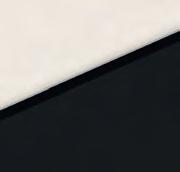



























Cthe ‘realisation’, or satisfactory expression in paint, of his Cezanne on this topic, which took place in 1904 in front He was work on canvas representing three skulls on oriental rug. He had been working on for month, every morning, from six o’clock until ten-thirty ‘What eludes me’, he told me from the easel as finished work all the same. In all truth, his way of working was meditation with the brush in hand. The wall space devoted to each work was accordingly more generous than usual, and often considerable. Sometimes only one pair of paintings occupied an entire wall, and the first room there was only one painting
Looking slowly with Cezanne The recent retrospective at the Art Institute of Chicago and Tate Modern, London, raised fundamental questions about the ways that Paul Cezanne expressed in paint the sensations aroused in him by his subjects, or ‘motifs’. This personal response to selection of works shown in the exhibition endeavours to suggest some answers. by no more possible take all of these one visit than it read (let alone digest) similar number verses by Cezanne’s favourite poet, Baudelaire. So, what follows will take its cue from the hang, and will dwell instead on few typical works, or on paintings that demonstrate genres landscape, still life, portrait, figure subjects and bathers for the most part assigning separate rooms, or walls, each. This clever strategy made possible both to follow Cezanne’s development normally did only when he sold them or gave them away, exhibited them this case Ambroise Vollard’s gallery in Paris in 1895. signature is therefore good indicator that Cezanne considered painting several features that typify Cezanne’s still-life practice. Most obviously, contains discontinuous horizontal edge the form of the tabletop, which lower the left than where emerges at the right from behind









part – and the way this material provided pictorial springboards for their paintings allows for a comparison between their approaches to their art. Both Wirth-Miller and Bacon were interested in publications on physical exercise and body-building. Wirth-Miller’s books on this topic are matched by Bacon’s copies of Pumping Iron:The Art and Sport of Bodybuilding (1977), History of the Olympics in Pictures (1972) and an issue of the magazine Physique Pictorial from 1961.38 Themes of books owned by Wirth-Miller, such as archaeology, ornithology and violent con ict, correspond, for example, to The Concise Encyclopaedia of Archaeolo (1960), Birds of the Night by Eric J. Hosking (1945) and The True Aspects of the Algerian Rebellion (1957), which Bacon kept in Reece Mews.39 Like Bacon, Wirth-Miller owned printed reproductions of works by Rembrandt van Rijn, Alberto Giacometti and Marcel Duchamp.40 Sometimes the painters even owned copies of the same books. Unsurprisingly, both Wirth-Miller and Bacon possessed publications containing reproductions of Muybridge photographs, and both owned the books Stalking Big Game with a Camera in Equatorial Africa (1925) by Marius Maxwell and Film (1944) by Roger Manvell.41 Although to 41 MBA Item 543: cut-out frame, E. Muybridge: Animals in Motion, London 1899, p.63, series ‘The Walk’, ‘Some phases in the Walk of a Dog from series 14’ and, for example, RM98F105:147: page, overpainted, E. Muybridge: The Human Figure in Motion, New York 1955, plate 124, ‘Woman walking downstairs, picking up pitcher, and turning’; MBA Item 889: R. Manvell, Film London and Aylesbury 1944 and RM98F1A:39: page from ibid. black-and-white photographic illustrations, scenes from Sergei Eisenstein, Battleship Potemkin, 1925; MBA Item 679: page from M. Maxwell, Stalking Big Game with a Camera in Equatorial Africa London 1925, plate 13 (chapter VII) ‘Face to Face with Rhinoceros Bicornis’; and RM98F1A:38:
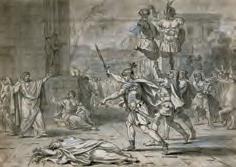

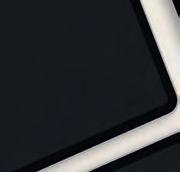

left, objects routinely do in Cezanne’s paintings. Looking attentively at the surface of the paintings sometimes reveals the marks that embody the decisions motivating so-called distortions this kind. And here, is its relationship to the final painted object.) Although such idiosyncratic features are pronounced Cezanne’s work, they have attracted little serious attention if, that is, formalist arguments about the decorative ambitions they embody cannot be taken





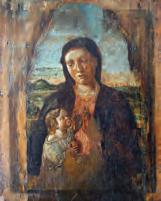



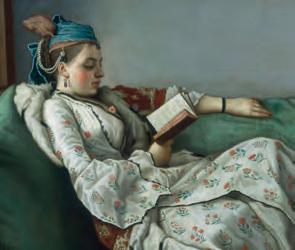


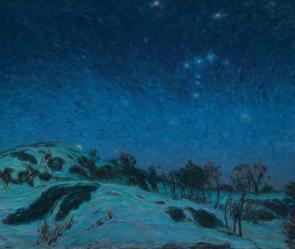




at face value. Perhaps the most fertile explanation them the one Anton Ehrenzweig offered an unjustly ignored essay of 1953, which an ensemble’, by which he meant well-proportioned unity. Ehrenzweig surmised that Cezanne succeeded disassembling the ready-made character of perception by staring fixedly things. And In 1943 the same year that sixteendied the age of fifty. Although the two artists never met, they shared heritage: both were Russian Jews living Western Europe. Kossoff grew up settled in France. They also shared an artistic sensibility expressionist and yet realist which is the primary focus














Exhibitions The first museum exhibition to explore the relationship between Leon Kossoff and Chaïm Soutine is a study in affinity and difference

Barnes Foundation, Philadelphia, in Including some forty paintings, the present display study affinity – a tracing analogous styles and are not alike, Soutine’s realism tipping
foothills the Pyrenees, 1918. the age of twenty to study Vilnius landscape caught the eye of Albert Barnes, who bought fifty-two works by Soutine 1922, securing the artist’s drunken topsy-turvydom to the trees Paysage aux cyprès (Fig.1), for example, and yet the sense of real passe-temps, Céret (c.1920–21; Scottish National Gallery Modern Art, Edinburgh), dark trees overrun suggestion amethyst’, as Monroe catalogue Soutine’s exhibition at the More conventional, at glance, (c. private collection), in which an ancient ash tree looms deep-blue silhouette emotive note. The external world provides correlative for the artist’s interior. The private significance of the Vence paintings Soutine made an onlooker the Riviera town
three large paintings from the 1960s and 1970s that bear witness the post-war decimation and rebuilding And yet Kossoff’s paintings feel of piece with the everyday. He the paint all its furrowed, pitted physicality has way of assailing the image, subjecting heat(1904–97), in the 1950s. This was also the decade in which, with Frank Auerbach (b.1931), he began depict
bomb sites. Kossoff admired Soutine’s Céret paintings Railway landscape near King’s Cross, dark day (Fig.2) carries extent human subjects sites artist on his own terms, but this has the effect, ultimately, undoing the show’s premise. The singularity sensitively selected and deftly hung, also its weakness, with each gallery
possessing stronger logic and unity One point that the show affirms is (1971; Tate), in which crowded bodies are interspersed with blue to suggest mundane riposte to Tiepolo. The noise, light and turmoil The exhibition provides concise yet vivid selections each artist’s portraits, which are selected from pared into schemata. Sally in armchair, no.1 (Fig.4), the crudeness shop.burlington.org.uk/ subscriptions


















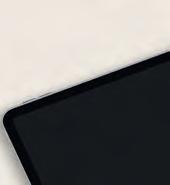

two The achievements of Van Gogh’s final two years are explored in exhibitions in Amsterdam and New York




men’s 3rd October 2023 and 4th February 2024. Mingling the reserves of the home museum with key works from the Orsay that once belonged to Paul Gachet, the artist’s physician and friend in the village, as well as international loans, this splendidly selected display takes the visitor deep into Van Gogh’s creative processes, encouraging close attention to the energetic brushwork and strong chromatics of the canvases The first gallery shows that, on arrival in Auvers, Van Gogh these were symptomatic of reassuring return to the familiar architecture and vegetation of the north after more than two years in Provence. Several of these paintings deliberately use the perspectives of lanes or paths, which articulate space while other patches or marks give dense surface activity. What noticeable in these village canvases that about half have no staffage and, in those that do, the figures appear to have been added at late stage, suggesting perhaps that Van Gogh found the sense of community more the friendship with Gachet, combining from Saint-Rémy (1889; Musée d’Orsay, Paris; cat. fig.158) with the likeness he painted of the doctor (Orsay; cat. no.22). also includes his copy (1889; Van Gogh Museum, Amsterdam; cat. fig.161) after Eugène Delacroix’s Pietà (c.1850; National Museum, Oslo), one of the images of grief, pity and despair that echo the state of mind Van Gogh hoped Gachet could ease but instead shows the flower still lifes, some painted the doctor’s house, using his vases. Detailed research has suggested that the substantial chestnut branch loaded painted following damage caused by the heavy storms of 24th and 25th May. ‘Youthful Portraits’ brings together paintings of young village women and girls, the most arresting being two portraits of Adeline Ravoux, daughter of the innkeeper (Cleveland
into Exhibitions Rothko (1903–70), Philip Guston (1913–80) and Dorothy Dehner (1901–94) experimented with all the distinctive watercolour properties – and, indeed, the freedom of expression that fostered to represent personal visions and emotions. Rothko diffused his colours, rotated his sheets to paint


shared visual interests, many of the book’s topics, such as war photography, that are prominent in Bacon’s collection of material and sometimes fed Exhibitions by Vincent van
played no role in Wirth-Miller’s art.42 It for example, Zelda Sayre Fitzgerald (1900–48) added graphite and ink to opaque and transparent watercolours Girl Mystary c.1932–34); Bill Traylor (1853–1949) painted on odd-shaped sheets of paper Mule and plow 42); Beauford Delaney (1901–79) laid in wet-in wet washes Untitled 1964); and Robert Motherwell (1915–91)

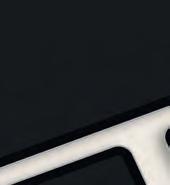


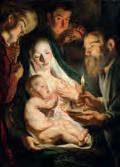





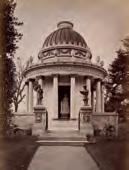




such overlaps in their collections are a manifestation of page from ibid., ‘Appendix B. Plate 2 Assembling a troop of scurrying rats’ and ‘A truculent individual facing the camera (Indian jungle elephants)’. 42 A photographic illustration of a soldier kicking in a door from the article ‘Horreur a Kolwezi’, on the rescue of European hostages taken by rebel and militant groups in the city of Kolwezi, Democratic Republic of the Congo, Paris Match (2nd June 1978), p.99 (RM98F23:6: torn-out page) fed into Bacon’s Oedipus and the Sphinx after Ingres (1983; Museu Coleçao Berardo, Lisbon), see K. Günther: Francis Bacon – In the Mirror of Photography: Collecting, Preparatory Practice and Painting Berlin and Boston 2022, p.199–201. 17/08/2023 16:13 Van Gogh in Auvers: life, from his arrival in the village of




and opaque watercolour and ink on paper wrapped around
and conceptual sensibilities with diminutive colour washes; LeWitt’s large-scale Wavy brushstrokes displayed alongside Elena Prentice’s diminutive and moving Sky studies (1981). The exhibition offers one more insight: the revelation of the role that frames play in number of these works, such as the off-white
SUBSCRIBERS Sweden in London: the 1924 Royal Academy exhibition Artemisia Gentileschi, poet A Dutch perspective box painting Early copies of Van Dyck’s ‘Iconography’ Botticelli drawings in San Francisco Camille Claudel in Chicago Picasso in Fontainebleau Victorine Meurent By contrast, the newspapers and has made her the secret police her peers Rigolboche, many others. newly discovered sufficient talent These more Meurent posed paintings of her from Olympia who had given the costume the Hippodrome By the 1860s the ‘distinction between an actress and woman who sold her body had .] been established as negligible and irrelevant: they were one and the same and both were public property’. Many posed for photographers and for artists and were thus exposed, often unclad, directly before the elite clientele of the Paris Salons. The young Meurent began in this situation. When she first posed for Manet in 1862 she was eighteen, cancan dancer and the mother of one-year-old daughter. When the journalist and writer Paul Eudel described her in 1884 in book prefaced by Manet’s old friend Champfleury that detailed the posthumous sale of works by Manet, he described how Meurent was this ‘old type of model’ (‘ type de l’ancien modèle’). Yet he also wrote that she had ‘managed to overcome situation’ (‘qui réussi conquérir une situation’). He contrasted her professionalism as an artist’s model with the courtesan actors who Manet was then also painting. Meurent seems not to have been engulfed by life as courtesan. She educated herself in literature as well as painting. Eudel wrote that she was ‘very intelligent’ and added that she passionately loved literature and ‘would write it when needed with some talent’ Elle en ferait au besoin ’). Nothing written by her has yet come to light. The railway Oil on canvas, Bridgeman Images). Artemisia Gentileschi’s ‘Susanna and the elders’ the burlington magazine 165 | october 2023 1062 MUNZ_Artemisia.indd 1062 20/09/2023 05:17 ‘Reform to Revolution’. Atmospheric audio sets the scene in certain parts; spoken in Manchu, Chinese and English, the thoughts of such figures as a Manchu woman, a bannerman, the artist Ren Xiong (1823–57), the revolutionary Qiu Jin (1875–1907) and the powerful Empress Dowager Cixi (1835–1908), provide context for the works on display. One of the most intriguing exhibits is the 1842 Treaty of Nanjing, on loan from the National Archives, London (no.2.23). The Treaty marked the end of the First Opium War and the defeat of the Qing by British warships on punitive mission to force China to continue importing opium produced in British India. It obliged China to pay large indemnity to Great Britain and to cede the island of Hong Kong to the British, under style decoration. Woven silk with embroidery, (Metropolitan Museum of Art, New York; exh. British Museum, 20/09/2023 11:09 Liotard, Boucher and ‘A woman reading’ Poussin and opera A self-portrait by Gillis Van Tilborgh Roubiliac and Sprimont Manet and Degas in Paris Berthe Morisot in Dulwich Recent acquisitions by the Detroit Institute of Arts NEW RESEARCH ON ART AND ITS HISTORY JUNE 2023 COVER_JUN23.indd Exhibitions celebration of all the ‘women that have as fashion designers and critically as readers’ (p.170). Although her determination, undoubtedly played part when came to commissions, was Yevonde’s use of colour that established her secured her place in the history of photography. Her brightly hued images impart striking glow, with electric blues and fiery reds impressing themselves on the eye with such them for backlit transparencies. an innovative self-portrait (Fig.21) that demonstrates Yevonde’s interest in ‘art of the past and present’ (p.28) to greet the visitor in the form of photographic wallpaper, shows camera, which she has propped up on copy of Herbert Read’s (1933). Wearing bright red jacket artist herself appears to be emanating glow. The rich colours in these images are characteristic of the Vivex adopted in the early 1930s. Developed by the inventor Douglas Arthur Spencer in 1929, requires ‘threecolour using red, green and blue light conditions’ (p.82). The separate high-quality colour print, leave their traces along the photograph’s edges; usually cropped off for reproduction, in the exhibition, alternating in strips of phosphorescent reds and blues, but also brilliant greens, yellows and pinks. In the 1930s colour was not particularly popular in the photographic community; not only was it, as Yevonde observed, ‘very (p.78), but was not considered serious medium. There was, especially among male practitioners, what the identified ‘chromophobia’, ‘fear of corruption through colour’ that he has traced back through generations and the feminine, ‘the superficial, the supplementary, the inessential or the are occasionally hinted at in the exhibition’s wall labels or catalogue texts, they were never an obstacle to contrary, colour was not only popular among the readership of women’s magazines, also helped Yevonde to the royal family. Among softer pastel portraits, the reds and blues of the robe Lord Mountbatten (1937) and the aquamarines of Princess Krishna’s sari (1937) leap off the surface of the prints. noteworthy work in this section is Yevonde’s portrait of the grandsons of Muhammadu Dikko, the photographs of George Bernard Shaw (1937) and Edward James (1933), patron of the Surrealists, her portrait of the they have been posed as well the colour separation Exhibitions the burlington magazine 165 october 2023 and canvas (one was withdrawn at the last moment), but nonetheless affords the best opportunity in generation to view the paintings of this extraordinarily vibrant and original artist. In so doing, it successfully justifies Henry’s advocacy. The impressive selection of loans from both public and private collections includes eleven of Signorelli’s early works and therefore complements the permanent collection in the Museo Diocesano, Cortona, which contains works by the artist made after 1502. One of these, Communion of the Apostles distributed on entry to the exhibition encourage visitors to extend their experience by exploring Signorelli itinerary that includes not only the Museo Diocesano but also the works that remain in churches in Cortona and the surrounding region. The exhibits include gonfaloni heraldic flags or banners made to be carried processions, altarpieces for both high altars and for small chapels, tondi for private devotion and predella scenes up-to-date assessment of the current Its ten essays, by Federica Papi, Sophia Chiappa, Serena Nocentini, Paolo Brushchetti, Eleonora Sandrelli and Patrizia Rocchini, as well as Henry, make it crucial addition to rooms is devoted to early works, made production remains relatively obscure. His earliest universally accepted works are the frescos in the Sistine Chapel (1481–82), yet payment records confirm that he was painting at least Unfortunately, the painting had to be withdrawn; a loss to the exhibition, as to see it alongside Signorelli’s and that he experimented with compositions in tondo form by including half-, three-quarter- or Etrusca Girodet’s ‘Coriolanus taking leave of his family’ the burlington magazine 165 october 2023 165 | SEPTEMBER 2023 Denis Wirth-Miller. c.1953. Wirth-Miller; courtesy Art Collection, Monaco). Eadweard Muybridge. (From Philadelphia 1887, plate 704). canvas, 198.1 by 137.2 cm. reserved, DACS 2023; London). Wirth-Miller with introducing him studies when they visited the together in 1949, with important very few exceptions, Wirth-Miller about their famous friend all knowledge of Bacon’s collection Bacon ‘had a distinct core of into a couple of suitcases’,36 and in seen in the Reece Mews studio
some degree
the
his paintings,
George Dyer.37 The survival of both Wirth-Miller’s side at least in Gallery The Hugh Lane (hereafter cited as FBA), nos.RM98F136:7, RM98F235:4 and RM98F137:7. FBA RM98F11:52, RM98F137:6 RM98F12:26. MBA Item 663 page from an unknown book, black-and-white reproduction, Rembrandt van Rijn, Self-portrait with beret, 1661, caption: Self-Portrait. About 1661. Aix-enProvence, Museum’; MBA Item 699: page from an unknown book, black-and-white reproduction, Alberto Giacometti, Head the Artist’s Mother 1947, p.25; MBA Item 661: page with colour reproduction, Marcel Duchamp, Nude Descending Staircase 1912, from ‘The Great Armory Show of 1913’, LIFE (2nd January 1950), pp.58–63, at p.60.

SINCE 1707 Hamburg | Dusseldorf | Munich | Rome | Milan | London | Paris | Brussels | Prague | Geneva Old Masters 19th Century Paintings Works of Art Palais Dorotheum Vienna +43 1 515 60-570 www.dorotheum.com CLASSIC WEEK 24 – 25 APRIL 2024 Hendrick Avercamp (1585–1634), Winter landscape with skaters on the ice, (detail) oil on panel, 41 x 60.5 cm, €220,000 – 250,000, Auction 24 April 2024

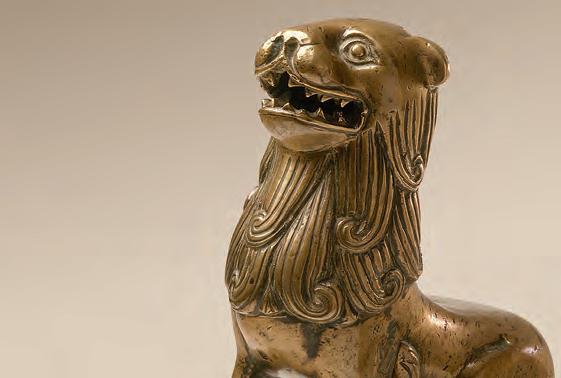











THE BURLINGTON MAGAZINE | 166 | MARCH 2024 XXXIV British Drawings Vol. 62, no. 1 Spring 2024 masterdrawings.org Master of the Giants, Figures in a Rocky Landscape (detail) London,Victoria and Albert Museum CONT @ CTS uy owse and b Br one-of-a-kind items online ms online day & faber old master drawings www.dayfaber.com m 11 Duke Street | St James’ | London SW1Y 6BN Tel. +44 207 930 1144 | Fax. +44 207 976 1596 www.rafaelvalls.co.uk | info@rafaelvalls.co.uk Daniel Katz G allery from antiquity to the 2oth century www.katz.art m TRINITY FINE ART 15 old bond street london w 1 s 4 ax www.trinityfineart.com info @ trinityfineart.com +44 (0)20 7493 4916 NEW RARITET GALLERY OLD MASTER PAINTINGS From Renaissance to the 20th Century www.newraritetgallery.com CONT @ CTS Browse one-of-a-kind day & faber old master drawings www.dayfaber.com m 11 Duke Street | St James’ | London SW1Y 6BN Tel. +44 207 930 1144 | Fax. +44 207 976 1596 www.rafaelvalls.co.uk | info@rafaelvalls.co.uk Daniel Katz G from antiquity to the 2oth century www.katz.art m m NEW RARITET GALLERY OLD MASTER PAINTINGS From Renaissance to the 20th Century www.newraritetgallery.com 38 & 39 DUKE STREET, ST JAMES’S, LONDON +44 2078395666 WWW.PETERFINER.COM CONT @ CTS uy owse and b Br one-of-a-kind items online ms faber drawings www.dayfaber.com century ART trinityfineart.com 4916 GALLERY Century To advertise please visit: burlington.org.uk uy owse and b Br one-of-a-kind items online ms day & faber old master drawings www.dayfaber.com m 11 Duke Street | St James’ | London SW1Y 6BN Tel. +44 207 930 1144 | Fax. +44 207 976 1596 www.rafaelvalls.co.uk | info@rafaelvalls.co.uk Daniel Katz G allery from antiquity to the 2oth century www.katz.art m TRINITY FINE ART 15 old bond street london w 1 s 4 ax www.trinityfineart.com info @ trinityfineart.com +44 (0)20 7493 4916 day & faber old master drawings www.dayfaber.com m 11 Duke Street | St James’ | London SW1Y 6BN Tel. +44 207 930 1144 | Fax. +44 207 976 1596 www.rafaelvalls.co.uk | info@rafaelvalls.co.uk Daniel Katz G allery from antiquity to the 2oth century www.katz.art m TRINITY FINE ART 15 old bond street london w 1 s 4 ax www.trinityfineart.com info @ trinityfineart.com +44 (0)20 7493 4916 NEW RARITET GALLERY OLD MASTER PAINTINGS From Renaissance to the 20th Century www.newraritetgallery.com CONT CTS uy owse and b Br one-of-a-kind items online ms day & faber old master drawings www.dayfaber.com m 11 Duke Street | St James’ | London SW1Y 6BN Tel. +44 207 930 1144 | Fax. +44 207 976 1596 www.rafaelvalls.co.uk | info@rafaelvalls.co.uk Daniel Katz G allery from antiquity to the 2oth century www.katz.art m TRINITY FINE ART 15 old bond street london w 1 s 4 ax www.trinityfineart.com info @ trinityfineart.com +44 (0)20 7493 4916 NEW RARITET GALLERY OLD MASTER PAINTINGS From Renaissance to the 20th Century www.newraritetgallery.com Browse one-of-a-kind day & faber old master drawings www.dayfaber.com m 11 Duke Street | St James’ | London SW1Y 6BN Tel. +44 207 930 1144 | Fax. +44 207 976 1596 www.rafaelvalls.co.uk | info@rafaelvalls.co.uk Daniel Katz G allery from antiquity to the 2oth century www.katz.art m TRINITY FINE ART 15 old bond street london w 1 s 4 ax www.trinityfineart.com info @ trinityfineart.com +44 (0)20 7493 4916 m NEW RARITET GALLERY OLD MASTER PAINTINGS From Renaissance to the 20th Century www.newraritetgallery.com


Johan Zoffany (1733–1810)
Edward Townsend singing the ‘Beggar’s Ballad’, 1796
Recently acquired by
Staatliche Kunsthalle Karlsruhe
Karlsruhe, Germany
www.morettigallery.com
MORETTI




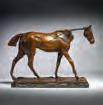
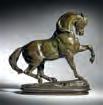









DESIGN AND PRINT SERVICES FOR FINE ART CATALOGUES AND BOOKS
If you are planning a printed or digital catalogue or have any other publishing project in mind, we welcome the opportunity to discuss how we might work together
Please contact Chris Hall for further information or for a free quotation
Email: hall@burlington.org.uk or telephone: +44 (0)20-7388 1228






Littleton & Hennessy Asian Art “YES WONDERFUL THINGS” EGYPTIAN ART FROM 3000 100 B.C. OLIVER FORGE & BRENDAN LYNCH 2022 laire Brown Art collaboration with “Yes, wonderful things” Egyptian Art from 3000 – 100 �.�. KALLOS GALLERY 12 R W RUPERT WACE AT CROMWELL PLACE –2022 nic fiddian green sculpted in stone THE HORSE A SCULPTURAL ICON THE HORSE –A SCULPTURAL ICON S CULPTURE GARDEN AND Elements of Design CONTEMPORARY THEMES MARJON COLLECTION S CULPTURE GARDEN AND Elements of Design CONTEMPORARY THEMES MARJON COLLECTION 24/09/2020 10:04 AN IMPORTANT SET OF EIGHT THANGKAS





6 St. James’s Place | London SW1A 1NP www.agnewsgallery.com
Anton Raphael Mengs (Aussig, Bohemia 1728–1779 Rome)
611⁄4
ACQUIRED BY THE J. PAUL GETTY MUSEUM
Portrait of Friedrich Christian, Prince of Saxony (1722–1763), three-quarter-length, in armour, with an ermine lined mantle and the sash and star of the Order of the White Eagle Oil on canvas
x 431⁄4 in. (155.7 x 110.8 cm.)

































































 Potted pansies, by Victoria Dubourg (1840–1926). c.1870s. Oil on canvas, in original frame, 21 by 26.8 cm.
Robilant+Voena, London and Rome. Stand 350.
Potted pansies, by Victoria Dubourg (1840–1926). c.1870s. Oil on canvas, in original frame, 21 by 26.8 cm.
Robilant+Voena, London and Rome. Stand 350.

































































































































































































































































































































































































































































































